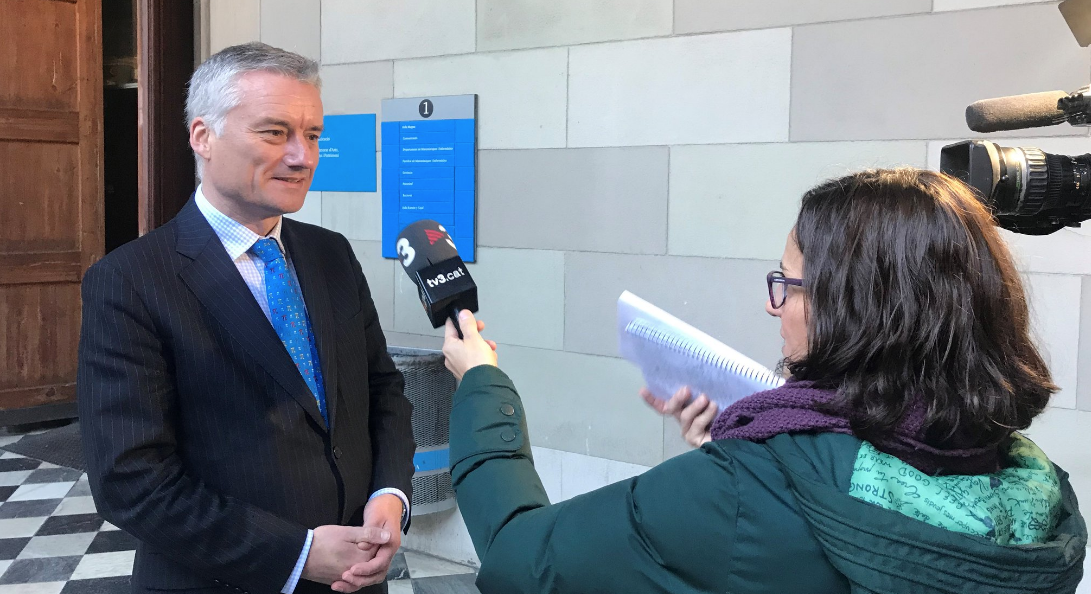Trinity, along with four other European universities, has become a founding member of a newly formed university partnership aimed at promoting the UN’s Sustainable Development Goals.
The new project, called Charm European University (Charm EU), is part of a wider initiative to strengthen links between universities in Europe. Charm EU will be led by five universities, including Trinity, taking a cross-discipline approach to global issues and operating through several European languages.
Speaking at the launch today in Barcelona, Provost Patrick Prendergast said: “Trinity is delighted to be part of this new network of European universities, cooperating together without frontiers.”
“We need education programmes and research at the frontiers of knowledge to reduce poverty and the overall human pressure on our planet. A truly sustainable planet requires a global effort”, he said.
He went on: “As individuals, institutions, cities and countries, we all have an essential part to play and through this collective European network we hope our universities will make a significant impact.”
The University of Barcelona, Utrecht University, the University of Montpellier and Eötvös Loránd University also signed the foundational agreement
The Rector of the University of Barcelona, Joan Elias, explained that the 17 objectives set out by the UN’s 2030 agenda will serve as direct inspiration for the new university.
“Unlike the UN Millennium Development Goals, of the period 2000-2015, the SDGs seek the involvement of local governments and civil society entities, while they also bring a global and interdependent perspective of the challenges humanity faces”, said Elias.
Many languages will be available to future students of the university, including Catalan, Spanish, French, English, Dutch, Hungarian, and Irish.
Charm EU is part of an initiative by the European Council to create a strong network of European universities. The move, which has funding of €30 million, aims to improve international competitiveness among European higher education institutes and to strengthen European unity.
“The idea was to gather a new generation of European people to cooperate and work on different European and international cultures, in different languages, without worrying about frontiers, different sectors and the different academic disciplines”, said Elias.
In 2017, Trinity joined the League of European Research Universities (LERU), a group of 23 research-intensive universities in Europe. LERU, which includes universities such as the University of Cambridge and the University of Edinburgh, strives to influence policy in Europe through its research.







